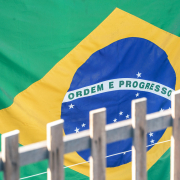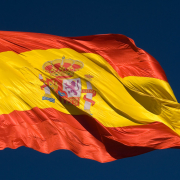The main doubts concern aspects such as the posting of workers in vehicles, the opening of the retail trade of agricultural, livestock and fishing inputs, as well as the suspension of deadlines in administrative procedures
The Ministry of Agriculture, Fisheries and Food, in order to resolve the main doubts raised by the declaration of the state of alarm in Spain, publishes the following information note:
Royal Decree 463/2020, as well as its amendment published today in the Official State Gazette (BOE), declaring the state of alert for the management of the situation caused by COVID-19, establishes that the competent delegated authorities will adopt the necessary measures to guarantee food supply.
Agricultural, livestock and aquaculture production, as well as fishing activity, processing of agricultural and fishery products, veterinary centres or clinics, transport and distribution of food, as well as its marketing through retail sale to the consumer, form the food supply chain whose activity must be guaranteed in the state of alert. This means that not only must the activity of agri-food businesses as a whole, including farms, livestock, aquaculture and fisheries, be maintained, but also that of the businesses which, in turn, supply them with the inputs necessary for their operation.
In the case of farmers, stockbreeders, aquaculturists and fishermen, they must be able to continue to carry out the work necessary to ensure that activity is maintained.
In any case, in order to prevent and contain the spread of the virus, work which it is not essential to carry out during the period of the state of alert should be limited or suspended, such as ancillary maintenance work.
During these days, numerous doubts or requests for clarification have been received in relation to the application of the state of alert in the agricultural and fishing sector, which can be grouped in the following sections.
1. Movement of workers in vehicles
Royal Decree 463/2020 establishes the limitation of the freedom of movement of persons, except for, among other activities, travel to the place of work to carry out work, professional or business activities. It also provides for the free movement of private vehicles on public roads for the performance of such activity in compliance with the recommendations and obligations issued by the health authorities.
Many queries have been received about how vehicles should travel to farms, fishing ports or the agri-food industry.
In this regard, it should be clarified that, according to Article 3.3 of Order TMA/254/2020, of 18 March, issuing instructions on road and air transport, vans may be used to transport workers to the countryside and to transfer seamen and workers from fishing vessels to ports, provided that no more than one third of the available seats in the maximum occupancy of the vehicle are occupied and that the safety measures dictated by the health authorities are observed.
In this way, two workers (the driver and another passenger behind the co-driver’s seat) may travel together in a car, and three in a van with a capacity for nine people. The necessary precautionary measures must be taken to maintain an appropriate safety distance between the occupants inside the vehicle. In any case, the row behind the seat occupied by the driver shall always be kept empty.
There have also been numerous queries about how to prove that a worker, a professional or the farmer, farmer or fisherman himself is travelling to his workplace.
There is no particular accreditation requirement for this situation, however, some organizations or entities are voluntarily providing models for their members that may be useful to facilitate the justification of the posting if required by the competent authority.
In any case, displacements are permitted as long as the farmer, stockbreeder, fisherman, professional or worker goes to perform his work in the terms described at the beginning of this note. Likewise, the owners of farms, livestock and fishing vessels must strictly comply with the protocols of the health authorities for the prevention and protection against COVID-19 in their workplaces, having the necessary means and organisational measures for them and their workers.
2. Opening of the retail trade of inputs for agriculture, livestock and fisheries
Agricultural, livestock, aquaculture or fishing activities require the use of inputs for their proper performance, such as the use of fertilizers, phytosanitary products, seeds and seedlings, veterinary products, feed, salt, ice, supplies, etc. To this end, the activity of the retail trade that supplies these types of inputs has continuity, since they are essential activities to ensure primary production and, with it, the food supply to citizens. Sometimes, this retail trade is provided by the agricultural cooperatives themselves, fishermen’s associations, fish markets or ports, which must be able to continue providing this service. Sometimes these products are also sold in establishments that market other types of products. In this case, the activity will be limited to that necessary for the sale of inputs to farmers, stockbreeders, fish farmers and fishermen.
3. Suspension of time limits in administrative procedures relating to the common agricultural policy (CAP) and to the fisheries sector
In general, the entry into force of Royal Decree 463/2020 means that all deadlines for the processing of administrative procedures linked to the Common Agricultural Policy (CAP) and the fisheries sector will be interrupted.
In this context, failure to comply with deadlines for reasons not attributable to the parties concerned may be considered to be force majeure.
3.1 In the specific case of procedures linked to the Common Agricultural Policy (CAP), with regard to direct aid received by farmers, for which the application period runs from 1 February to 30 April, the Ministry of Agriculture, Fisheries and Food appreciates the European Commission’s decision to extend the application period to 15 June. The Commission has confirmed to Spain that the processing of an implementing regulation for this extension will start shortly. In any case, in collaboration with the Autonomous Communities, the telematic presentation of aid applications will be facilitated so that the maximum number of applications can continue to be registered by telematic means while the state of alert lasts.
For all the aid schemes and administrative procedures linked to the application of the CAP in Spain, a review will be carried out to facilitate compliance with the commitments of all the beneficiaries affected by the application of the state of alert, as this exceptional state is considered to be a cause of force majeure, and the European Commission will be requested to make any necessary changes to the emergency regulations.
3.2. With regard to the time limits relating to penalty proceedings in the fisheries sector, in the case of infringements for which no proceedings have been initiated, the time limits for the prosecution of infringements are suspended, although provisional measures may be taken.
In the case of proceedings that have been initiated, the processing of those proceedings is suspended, as well as the time limits for expiry and for carrying out any type of procedure, except for those measures of organisation and instruction that are strictly necessary and can be adopted in order to avoid serious damage to the rights and interests of the interested parties, always with the agreement of the interested parties.
4. Rules for fishing vessels, in coordination with the Instituto Social de la Marina (ISM). Operational recommendations.
Vessels are a critical part of the food supply chain, so their functioning and operability must be guaranteed. The people who are part of the crew must respect and apply these recommendations in all their points. The personal and social responsibility of all crew members is essential to minimize risks and avoid contagion.
If none of the crew is affected by the disease, the ship is a space that offers isolation with third parties and should be kept in this way for as long as possible, prolonging the tides as much as possible, as long as safety at sea allows, avoiding entering port until sufficient catches are available for a significant degree of occupation of the holds or the quality of the catches may be affected. The measures of self-protection shall be determined in each case by the master of the vessel according to the circumstances and may include, if necessary, the landing of the crew between fishing trips in order to avoid contagion.
High Seas and High Seas Fleet
If there are not enough catches, as stated in the previous point, it is recommended not to return to port and to remain at sea until the indicated quota has been reached.
Fleet operating in national waters
Its own activity determines that its operation involves tides with entry into port every day. For this type of fleet, it is recommended that its crew members take extreme hygiene measures and follow the recommendations that will be determined in the future by the Ministry of Health.
Specific rules will be disseminated regarding access and pre-boarding control, the organisation and cleaning of the vessel and how to act in the event of a suspected or confirmed positive for coronavirus.
Source: MAPA



